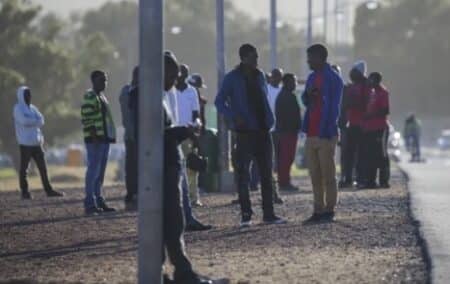Social justice activists who count themselves ‘progressive’ tell us that ‘lived experience’ trumps analysis in understanding how and why people live the lives they do.
What they seldom seem to appreciate is that, in the most important ways, the two actually align in revealing what the real problems are, and where they originate.
Of course, critical race theorists don’t see it this way. For them, ‘lived experience’ is not necessarily about an actual experience anyone has lived through, or is living through.
It is either subjective, an experience on which only the subject can be authoritative, or ‘recollective’, where experience is reflected on after it has occurred or been lived through or can be a historical episode experienced by predecessors, such as apartheid or slavery. Central to both the subjective and recollective forms is their sustaining a narrative of racialism, an explanation that always reveals whites to be perpetrators and blacks victims.
By the lights of critical theorists, this narrative is always more authentic than any explanation offered by analysis based on science or measurable data.
In its plain sense, however, ‘lived experience’ is less convenient.
Take the plight of South Africa’s young people
When President Cyril Ramaphosa acknowledged the courage of the school children of Soweto who rose up on 16 June 1976 to oppose the National Party’s ludicrously arrogant and misguided decision that they be taught in Afrikaans, he described their action as ‘taking a stand against a cruel and unjust system’.
(Incidentally, in the weeks leading up to the eruption on 16 June, the Institute of Race Relations twice sent messages to Progressive Reform Party MP René de Villiers – an executive committee member of the IRR – warning of the incendiary effect of the Nationalists’ provocative language ruling. The response from a profoundly out-of-touch Deputy Minister of Bantu Administration and Development and Bantu Education, Andries Treurnicht, was a marvel of delusion: ‘I’m not aware of any real problem.’)
Apartheid-era cynicism
Doubtless, apartheid-era cynicism and disdain for the educational needs of black children were enough to justify Ramaphosa’s Youth Day description of Bantu Education as ‘another tool of the apartheid system to keep black South Africans in servitude’.
But what does Ramaphosa make of the lived experience of South African youth after a quarter of a century of African National Congress (ANC) government?
He did acknowledge – though he could hardly have avoided it, on Youth Day – that ‘(nearly) 64% of young people in South Africa are unemployed’, and that ‘(this) is something no country can afford.’
But to the state of education in 2021 the president paid scant attention, except to devote a few lines to the government programme under which ‘320 000 young people have been placed as education assistants and general assistants in 24 000 public schools across the country’.
These lucky few ‘are working with our learners and helping to lighten the load for our educators’, Ramaphosa explained. ‘Our teachers and principals are telling us that this programme is making a big difference.’
The president’s optimism, however, points to a chronic failure to grasp the scale of the crisis facing young people.
As my senior colleague, IRR head of policy research Anthea Jeffery, wrote last week: ‘The current jobless rate among youths aged 15 to 24 stands at a staggering 75% on the expanded definition that includes those not actively seeking work. Among young people aged 15 to 34, more than half (51%) are unemployed. The 6.8 million young people unable to find jobs make up some 60% of the 11.4 million South Africans now unemployed and destitute.
‘This crisis has very little to do with racism, especially after 27 years of ANC (mis)rule. Instead, it stems largely from bad governance, worse policies, and the persistent failures of the education system.’
‘Little bang for its extensive buck’
Jeffery points out that South Africa ‘spends more than 6% of GDP on education – more than many other countries can afford – but gets little bang for its extensive buck’. Despite all this investment, ‘fewer than 40% of the pupils who start school in Grade 1 manage to pass their matric exams, while only 14% do so with results good enough to go to university. A mere 4% get marks of 50% or more for matric maths’.
It is little surprise, then, that ‘(the) more than 60% of youngsters who leave school without even a matric are often functionally illiterate and innumerate’. Their problems don’t end there, as Jeffery argues: ‘They then confront an economy made largely ‘uninvestable’ by persistent nationalisation threats – and further bedevilled by destructive loadshedding, deteriorating infrastructure, disintegrating local administration and escalating corruption.’
It requires fantastic mental contortions to suggest, 27 years into the democratic era, that South Africa’s small and dwindling minority of whites is to blame for pitifully low economic growth and the costly deficiencies in school education.
Race hustlers would have you believe otherwise. Through their self-interested efforts, they are content to deflect attention away from finding solutions to the real problems by trying to pin the blame on ‘racist’ whites
Hearteningly, as the research data that underpins the Racism is Not the problem initiative launched earlier this month shows, black citizens know better than anyone that the lived experience of South Africans today is enough to dispel such nonsense.
If you like what you have just read, support the Daily Friend
[Photo: Nick Bothma/EAP]

